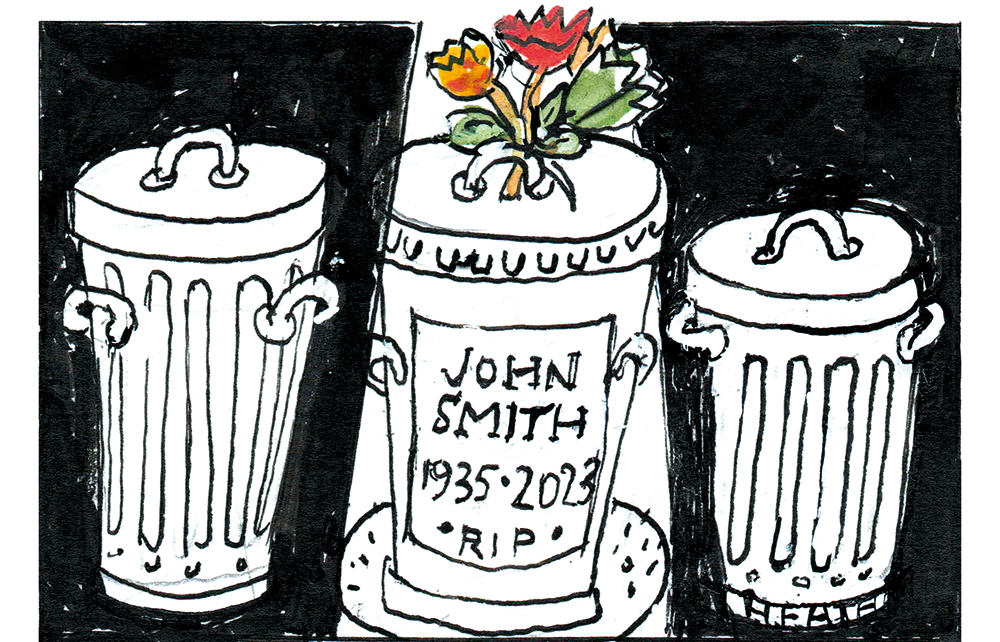Ashes to ashes, dust to dust is all very well, but nowadays the melancholy business of disposing of human remains can be expedited with caustic soda. I only know this because the Church of England’s General Synod has been asked to consider the burial alternative of water cremation, or resomation, which uses a bath of hot water and potassium or sodium hydroxide to dissolve flesh and bones. The family ends up with the ashes from the bones, and the biofluid from the process is disposed of in the sewers. This is legal in the UK, but so far water companies have been reluctant to embrace human remains.
The synod, which met this week, has also been asked to consider human composting: as the name suggests, a way of turning a corpse into perfectly good compost – up to two wheelbarrowfuls. It takes four to six weeks and the result can then be used on the family shrubbery. The phrase ‘pushing up the daisies’ has rarely been so apt.
The reason these interesting alternatives are being contemplated is, as you’d expect, environmental. The Church has its net-zero commitments to worry about. But it’s not just the C of E that’s thinking about such things. The Law Commission is working on ‘a modern framework for disposing of the dead’, which suggests the outcome is a foregone conclusion.
Water cremation, according to a company called Resomation, gives off 35 per cent less carbon emissions than a fiery one. As for human composting, that apparentlyuses an eighth of the energy of a normal cremation. Which makes you wonder: why not stick to actual burial in a graveyard? That reduces your remains to dust eventually too, although more slowly than in human composting. Replacing coffins with old-fashioned shrouds could perhaps speed up the process. Or we could always pile up the bodies, like in Italian ossuaries.
If the C of E is looking for advice from other churches, they may get a dusty response from Roman Catholics, because the approach there is that burial is best and cremations of any kind are only just acceptable (before 1983 when the regulations changed, a Catholic couldn’t be cremated at all). In the Code of Canon Law it says: ‘The Church earnestly recommends that the pious custom of burial be retained, but it does not forbid cremation, unless it is chosen for reasons that are contrary to Christian teaching.’
In other words, if it’s really necessary to go for cremation – as in Japan where there’s just no room for conventional burials – that’s acceptable. But not to produce garden compost.
Why, when you think of a Christian funeral, is it a burial that comes to mind? There’s nothing quite so brutally final as gathering round a hole in the ground to see a coffin lowered into it. And there’s little so moving as the Church of England’s Book of Common Prayer burial service, which stipulates that ‘while the earth shall be cast upon the body’, the clergyman should say: ‘We therefore commit his body to the ground, earth to earth, ashes to ashes, dust to dust; in sure and certain hope of the Resurrection to eternal life, through our Lord Jesus Christ.’ Ground, earth, ashes, dust. What better way to return?







Comments